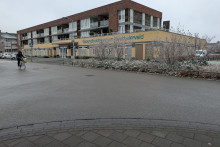‘A great portion of onsite accidents is caused by heavy construction equipment. In many cases that is due to inadequate training of the operators,’ begins Faridaddin Vahdatikhaki, the main researcher behind the project Serious Gaming and Virtual Reality for Construction Training.
‘There are trainings and schools available for construction operators, but the training is challenging,’ says Vahdatikhaki. ‘Practicing on the actual equipment is rather expensive, which is why many training facilities have started using simulators. However, to use this technology, the manufacturers of the simulators need a designer to create a training scenario and those are often not realistic. The goal of this research project is therefore to make the training scene as realistic as possible.’

Not the only player in the game
To accomplish that, the researchers will start by collecting data directly from construction sites. ‘We can use GPS on the equipment, map what is done and make animations of real work. Thanks to that, students can be exposed to a realistic scene and learn not only how to operate the equipment, but also how to interact with the environment and other people on the scene, because once you are on the site, you are not the only player in the game,’ points out Vahdatikhaki.
‘Accidents are caused by the blind spot’
Since there are already simulators in use, why is it important to include VR in the training? ‘The current simulators consist of a hydraulic seat with a joystick and a number of TV screens in front of the user. That is not realistic, because the trainees can’t adjust their view – something that is crucial, because many accidents are caused by the blind spot. You need to learn how to move your head in the right way and have the right vision, so you can avoid a collision,’ answers Vahdatikhaki.
If the project is successful, resulting simulators will significantly reduce training time on actual equipment. Also, by collecting a lot of data from various sites, the researchers can capture cultural and environmental differences that even experienced operators can use. ‘Many operators now rely on their intuition, but that doesn’t always work,’ thinks Vahdatikhaki. ‘It would be beneficial if they had a better understanding of their surroundings, because one small mistake can threaten lives.’







